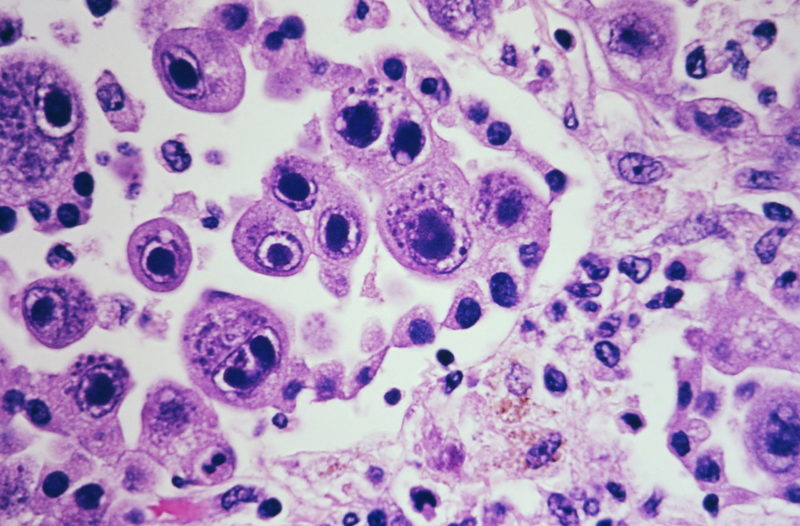Content
– Cytomegalovirus: What is it?
– Symptoms of Cytomegalovirus
– Cytomegalovirus and pregnancy
The Cytomegalovirus (CMV) is a virus that belongs to the family of the Herpes viruses. In most cases, it is an infection occurring in childhood. Let’s see closer in this post.
Cytomegalovirus: what is it?
It is a virus that is part of the Herpes virus family. It reaches only humankind. This virus is contained in different secretions: tears, saliva, urine, blood, genital secretions, breast milk, mucus. It is a very contagious virus, which can be transmitted:
– transmission by nasal droplets during a sneeze or cough;
– sexual transmission;
– transmission between mother and fetus during pregnancy;
– transmission during breastfeeding;
– transmission during an organ or bone marrow transplant.
The period during which a patient is contagious can be very long, especially in young children and people with lowered immune defenses. Thus, a person can be contagious for several years by excretion of the virus.
This virus is destroyed by bleach, boiling, soap, and common disinfectants. However, it is resistant to freezing.
Symptoms of cytomegalovirus

Once the virus is contracted, the incubation period is one month on average. In most cases (90%), the disease does not cause any symptoms, and the CMV infection is not identified. This infection is most often contracted in infants, children, or young adults. Therefore, most people do not know that they have been infected with CMV.
Occasionally, symptoms may exist:
– Presence of an isolated fever can last from 15 days to 3 months. Fatigue, muscle pain, headaches can accompany it. In some cases, weight loss may also be observed.
– In rare cases, CMV can manifest itself by a pulmonary infection (pneumopathy) or even a Guillain-Barré syndrome.
In people who have all their immune defenses, treatment is only symptomatic, and that is, the fever or pain is controlled. The use of antiviral therapy is not justified in this population. On the other hand, antiviral treatment is indicated in people who have received a transplant or are immunocompromised.
Once the virus is contracted, immunity is long-lasting. The virus can remain latent in specific body cells, which can be severe in an immunocompromised individual.
Good to know: There is currently no vaccine against CMV.
Cytomegalovirus and pregnancy

During pregnancy, it is not recommended to systematically perform a serology test on a pregnant woman to find out if she has already been infected with CMV or not. If she is not immune and contracts the infection during pregnancy, the possible risks are not for her but her fetus. In most cases, there are no consequences for the fetus. More rarely, maternal-fetal infection with CMV can result in:
– neurological sequelae;
– sensory sequelae;
– malformations.
Good to know: infants are the main source of contamination during pregnancy. Therefore, preventive measures must be taken if you are pregnant and surrounded by young children at home or work.
Hope this post has been informative to you. Please feel free to share your views in the comments below. Alternatively, you can check on the Centers for Disease Control and Prevention (CDC) website, where they give you further information on babies born with CMV and hearing loss.
Do you want to read more about health talks?
7 Foods that Damage Your Kidneys;
Why and When to See a Podiatrist;
Testosterone Growth Hormones for Bodybuilding – Should you buy them?
A Guide To Bodybuilding Nutrition;
7 Tips for More Energy in the Morning;


